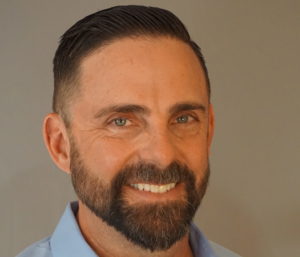What a Mother Learned After Losing Her Son to Suicide
The first item in their new house was a brown little army guy that Joey placed on top of a motion detector to keep everyone ...
This July, The Jed Foundation (JED) is pleased to welcome Kurt Michael, PhD, as Senior Clinical Director. He will lead the development of partnerships that improve the policies, practices, and procedures in communities, both large and small, around adolescent mental health promotion, school-based mental health, and suicide prevention in the Rocky Mountain West and throughout the U.S.
We sat down with the incoming Senior Clinical Director to discuss his new role.
Q: What inspired you to work in the mental health space, and what excites you specifically about working for JED?
A: When I was in college at the University of Colorado at Boulder, many moons ago, I spent three years volunteering for a mental health crisis line that served the Denver-Boulder area. This was before I declared psychology as my major. It felt like I was on the front lines of unrelenting human suffering. Though it was harrowing, it also opened my eyes to approaches that could be helpful. That early glimpse into people’s despair, as well as family and friends’ experiences with mental health issues, motivated me to explore the science that promotes healing. I haven’t looked back since. At JED, I am thrilled and humbled to have the opportunity to work alongside an energetic and committed group of professionals, all of whom share my passion for serving youth.
Q: What will the role of Senior Clinical Director add to JED, and how will your expertise elevate its ongoing work?
A: My role will contribute to JED’s mission by systematically expanding and scaling our capacity to serve younger populations in a setting where they spend much of their time: in schools. In addition, by serving youth at an earlier stage in their development, JED programs have the potential to prevent or reduce the onset of mental health impairments and help to create and sustain avenues for support and intervention that were previously unexplored. I believe my background in program development, implementation, research, and evaluation aligns well with the expectations of the role.
Q: How will your background, focusing on adolescent mental health in rural areas, help you serve all young populations?
A: My first experience working with rural teens, including indigenous youth, was during graduate school in Logan, Utah in the early 90s. Most of the youth we served had minimal access to any health care services, let alone effective mental health care. We had to get creative to provide sustained services to several mountain communities. However, once the momentum was established, and the funding streams were set up, several of the known barriers—including a lack of available providers and skepticism about mental health treatments—were addressed successfully. My early experiences in Utah helped to shape the work I did in the rural Appalachian communities for the past twenty-three years, including the development, implementation, evaluation, and maintenance of several school mental health partnerships with local school districts. The signature issues we addressed were the provision of effective mental health services on demand, crisis intervention, and the discovery and publication of new knowledge regarding how best to serve youth in rural schools. My background in rural school mental health will be the foundational framework or launch-point to inform my role at JED, while leading the efforts to serve youth and families in communities throughout the country.
Q: What will success look like during your first year?
A: I have three primary goals during my first year as the Senior Clinical Director. First, I will begin by establishing strong, trusting relationships with my colleagues at JED. Second, I plan to engage in an extensive listening tour among the constituents JED serves and document the observations and insights in hopes of cultivating successful and sustained partnerships nationwide. Third, I plan to work with and alongside my programmatic colleagues and clinical partners to inform, implement, and evaluate scientifically sound and ecologically valid approaches to promoting emotional wellness and preventing suicide one community at a time. If I’m able to focus and accomplish these three goals, year one will be a success!

If you or someone you know needs to talk to someone right now, text, call, or chat 988 for a free confidential conversation with a trained counselor 24/7.
You can also contact the Crisis Text Line by texting HOME to 741-741.
If this is a medical emergency or if there is immediate danger of harm, call 911 and explain that you need support for a mental health crisis.